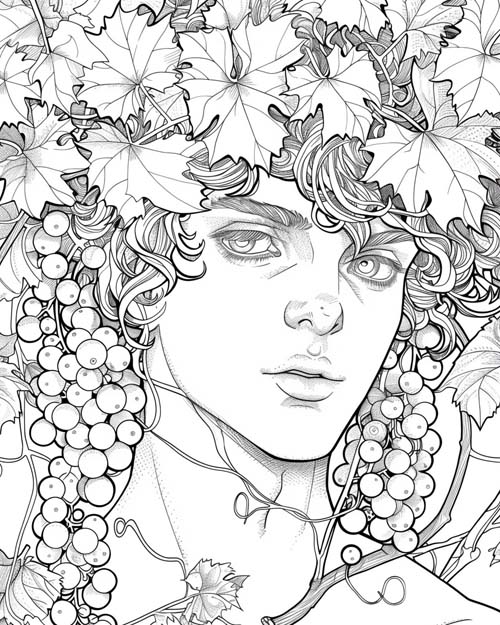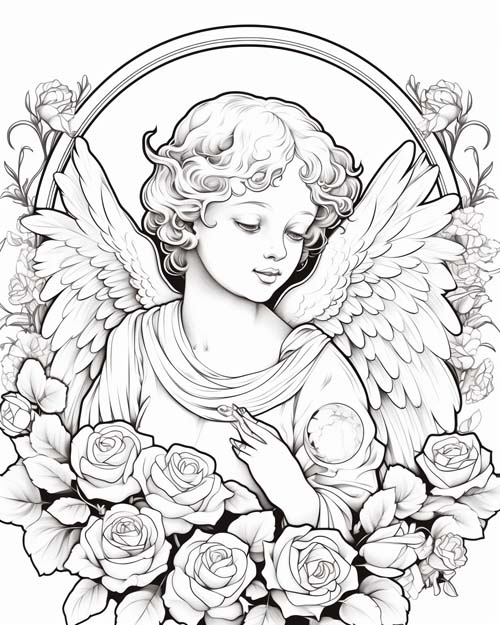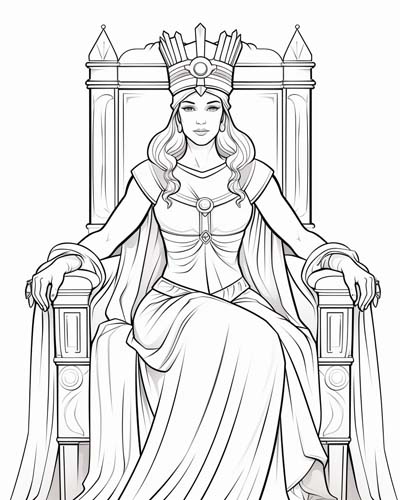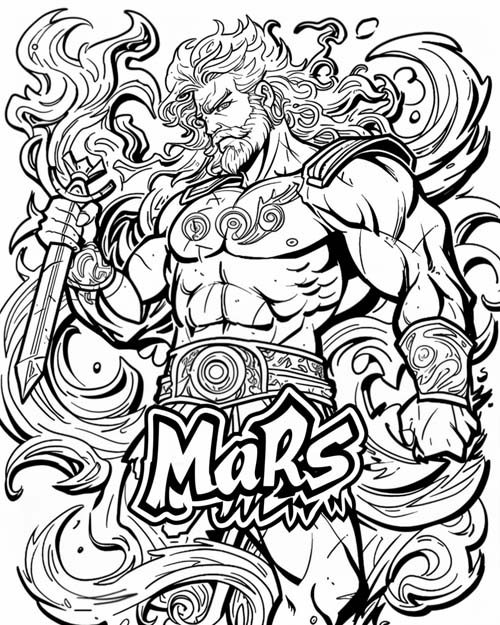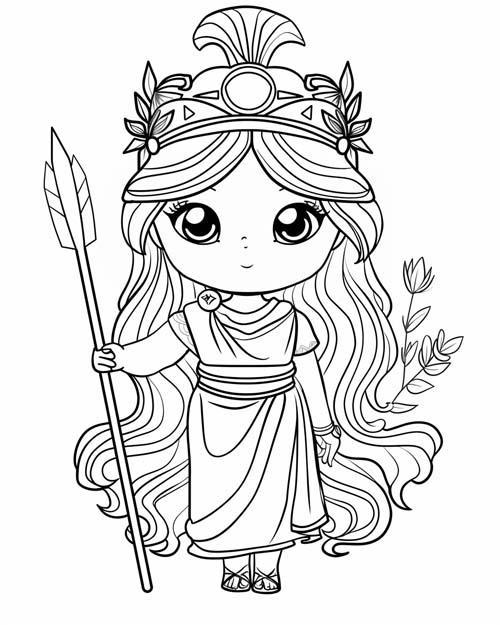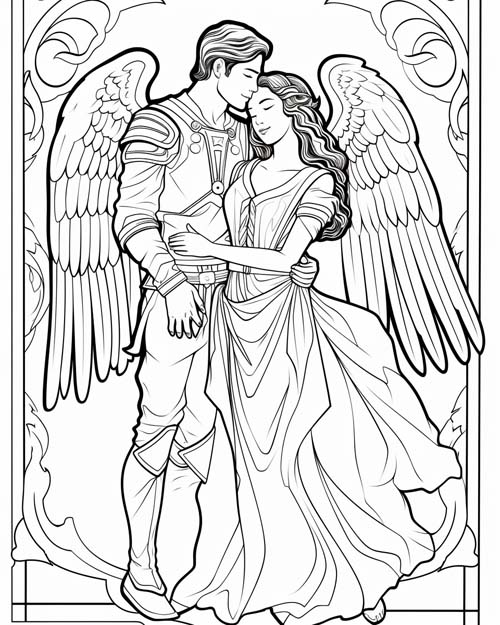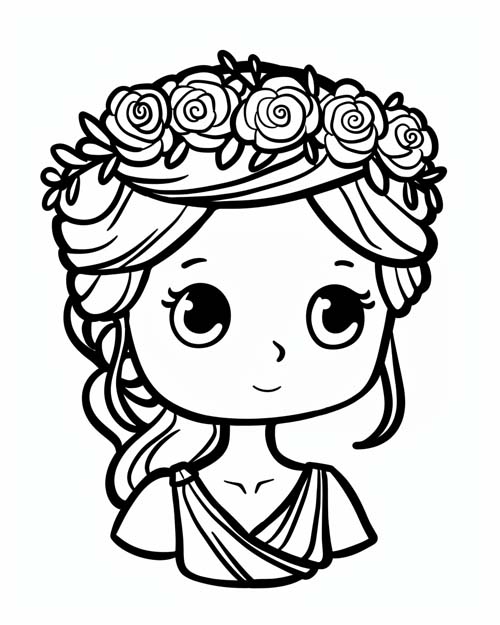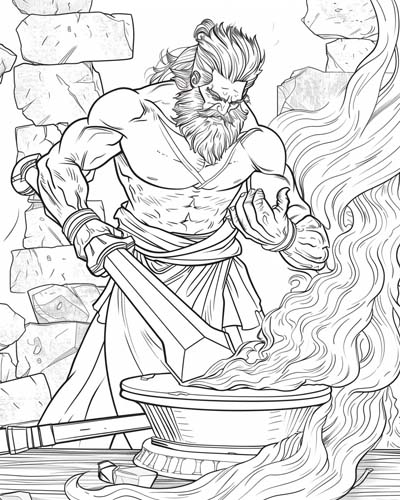Leanne's Printable Coloring Pages for Kids
Roman Mythology Coloring Pages
Welcome to our Roman Mythology Coloring Pages!
Roman mythology grew out of a mix of earlier Italic and Etruscan beliefs, but it was most heavily influenced by Greek mythology. The Romans often borrowed Greek gods, giving them new names and sometimes new personalities that reflected Roman culture and values. Over time, these myths evolved, weaving in stories about love, war, wisdom, and adventure, and inspiring art, literature, and festivals across the Roman world.
The Greek gods were often more capricious and dramatic, while Roman versions (though similar) became more orderly, socially oriented, and morally instructive, though still magical and awe-inspiring. Many of the gods’ names were later used to name the planets we see in the sky today, so when you look up at Mars or Venus, you’re seeing a little piece of Roman mythology shining back at you!
Apollo
Apollo originated as a Greek god, but the Romans adopted him with the same name and largely the same attributes... an unusual case, since most Greek gods were renamed. He is the radiant god of music, poetry, prophecy, and the sun.
Legends tell of Apollo’s skill with the lyre, his prophetic powers at the Oracle of Delphi, and his role in bringing light and order to the world. As a symbol of harmony, wisdom, and artistic inspiration, Apollo was revered across the Roman Empire.
Bacchus
Bacchus was the Roman god of wine, parties, and celebration. He loved music, dancing, and anything that brought joy and excitement. His festivals were full of colorful costumes, wild performances, and plenty of wine, he reminded people to enjoy life and celebrate with friends.
Bacchus is the Roman version of the Greek god Dionysus. In Greek mythology, Dionysus was closely tied to wine, theater, and ecstatic celebrations, often showing both joy and wild chaos. When the Romans adopted him as Bacchus, they emphasized the festive and social aspects of his character, linking him more to public celebrations and less to the sometimes dangerous unpredictability of Dionysus. Dionysus was more of a party animal -- Bacchus was more of a party planner!
Cupid
Cupid, the mischievous god of love, loved to make people fall in love sometimes in unexpected ways! Armed with his magical bow and arrows, he could spark attraction and romance wherever he went. He’s often shown as a playful little figure with wings and a twinkle in his eye.
Cupid comes from the Greek god Eros. In early Greek myths, Eros was sometimes a primordial force of desire, representing love and creation itself. The Romans turned him into Cupid, a playful, mischievous young god with arrows who causes people to fall in love, focusing on more personal, human-centered stories of romance.
Diana
Diana was the goddess of the moon, hunting, and wild animals. She protected women and children and was often shown with a bow and arrows, surrounded by the creatures of the forest. Diana represented independence, courage, and a connection to nature.
Diana comes from the Greek goddess Artemis. Both are hunters and protectors of young women, but Roman stories emphasized her civic role as well as her ties to the countryside and sacred groves, blending adventure with moral guidance.
Juno
Juno was the queen of the gods and goddess of marriage, family, and childbirth. She protected women and the Roman state, watching over both personal lives and civic duties. Often depicted with a crown or scepter, Juno was a symbol of loyalty, care, and responsibility.
Juno comes from the Greek goddess Hera. Like Hera, she was married to the king of the gods, but the Romans focused more on her role in protecting the city of Rome and supporting family and society rather than just her personal rivalries.
Jupiter
Jupiter was the king of the Roman gods and the ruler of the sky and thunder. He was the protector of Rome, guiding leaders and helping maintain order in both the heavens and on Earth. Often shown holding a lightning bolt, Jupiter represented strength, justice, and authority, inspiring respect from gods and humans alike.
Jupiter comes from the Greek god Zeus. While both are kings of the gods and control the sky, the Romans emphasized Jupiter’s role as a guardian of the state and law, making him central to Roman religion and civic life.
Mars
Mars was the Roman god of war but also of protection and courage. He guided soldiers, watched over Rome, and symbolized strength, discipline, and bravery. Unlike some gods of battle, he was respected not just for fighting, but for defending and leading with honor.
Mars corresponds to the Greek god Ares, who represented war, bloodshed, and chaos. The Romans adopted Mars as their god of war but emphasized his role as a protector of the Roman state and a symbol of courage, discipline, and honor. Unlike Ares, Mars was respected and celebrated rather than feared.
Minerva
Minerva was the Roman goddess of wisdom, strategy, and clever thinking. She guided people in arts, crafts, and battle plans, encouraging clever solutions and learning. Brave and fair, she was a protector of cities and a champion of knowledge.
Minerva is the Roman equivalent of the Greek goddess Athena. Athena was known as a goddess of wisdom, warfare, and crafts in Greek mythology. When adopted by the Romans, Minerva retained her intelligence and strategic skill but was also associated more with peaceful arts, learning, and civic life, becoming a protector of cities and culture rather than just warriors.
Psyche and Cupid
Psyche was a mortal girl so beautiful that she caught the attention of Cupid, the Roman god of love. Cupid fell in love with her, but their story was not easy... Psyche had to face a series of difficult tasks set by Venus, Cupid’s mother, who was jealous of Psyche’s beauty. Through courage, cleverness, and patience, Psyche completed the challenges, proving her strength and devotion. In the end, she and Cupid were reunited and allowed to be together forever.
The myth is Greek in origin, but the version most people know today comes from Roman storytelling. It shows how ancient cultures shared stories about love, gods, and adventure, reshaping them in ways that reflected their own values and imagination.
Venus
Venus was the Roman goddess of love, beauty, and charm. She inspired feelings of attraction, friendship, and devotion, and was often called upon to bless weddings and families. People admired her for her elegance, kindness, and magnetic presence.
Venus evolved from the Greek goddess Aphrodite. Aphrodite was linked not only to love and beauty but also to passion, desire, and sometimes unpredictable behavior. The Roman Venus retained the qualities of love and beauty but became a more socially oriented goddess, often tied to family, marriage, and the ideals of harmony and attraction in Roman society.
Vulcan
Vulcan was the Roman god of fire, metalworking, and crafts. He created weapons and armor for gods and heroes and was admired for his skill and creativity. Though sometimes associated with destructive fire, he also represented invention, craftsmanship, and hard work.
Vulcan comes from the Greek god Hephaestus. Both are masters of the forge, but the Roman Vulcan was especially linked to practical craftsmanship and the control of fire, highlighting the value of skill and industry in Roman society.
Mermaid
Mermaids weren’t gods in Roman mythology, but sailors and storytellers often spoke of them. These mythical creatures, half-human and half-fish, were believed to appear near the sea, sometimes warning of storms or guiding ships safely. They remind us of the mysteries and wonders of the ocean in Roman folklore.
In Greek myths, Nereids were gentle sea nymphs who helped sailors and guided ships safely. Romans adopted similar tales, imagining mermaid-like creatures connected to the sea, sometimes helpful, sometimes mysterious capturing the wonder and danger of the ocean.
The word "mermaid" appears in Middle-English European folklore long after classical Greek and Roman mythology, so mermaids themselves are not part of ancient myths, though similar creatures (Nereids, Oceanids, and sirens) existed.


